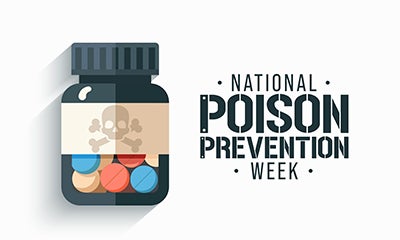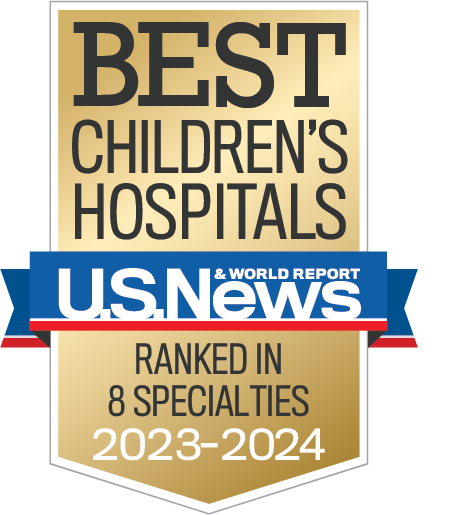Parents advised to take safety precautions during National Poison Prevention Week
March 15, 2024
Categories: News
Birmingham, Ala. (March 15, 2024) — The Alabama Poison Information Center at Children’s of Alabama encourages parents to check their homes for potential safety hazards during National Poison Prevention Week.
“It’s a great time to educate people about potential poisonings and how to prevent them,” said Becky DeVore, a nurse educator at the Alabama Poison Information Center.
National Poison Prevention Week begins on Sunday, March 17, and runs through Saturday, March 23. Last year, the Alabama Poison Information Center handled more than 107,000 calls and managed calls on patients that ranged in ages from 24 hours to 102 years old.
“Our number is 1-800-222-1222, and you can call it 24/7,” said DeVore. “ The person who answers the phone will be a registered nurse, pharmacist, or physician.”
Some of the top 10 substances seen in pediatric exposures in the state involving patients less than six years old include cleaning products, cosmetics, analgesics, dietary supplements, and foreign bodies.
This year’s National Poison Prevention Week theme is “When the unexpected happens, poison help is here for you, 24/7.” DeVore says prevention and education are key because poisonings are usually unexpected, so being prepared is vital.
One way parents can protect their children is to avoid medication mix-ups. DeVore says it happens frequently. According to the Agency for Healthcare Research and Quality, medication mix-ups and mistakes result in thousands of emergency department visits and hospital admissions each year.
“We recommend parents do not call medications candy because children will wait for those unsupervised moments and take a large amount of medication, thinking they are eating candy,” said DeVore. We also recommend medication be stored out of sight and out of reach. It’s best if you can lock up the medication.”
DeVore says parents can dispose of old medication at many local pharmacies or police departments.
Another potential poison hazard parents need to be aware of is nicotine pouches. They are small bags that users place in the mouth, between the upper lips and gums. They contain nicotine, flavorings and other fillers, but they do not contain tobacco. Some people use them as an alternative to smoking to reduce their exposure to tobacco smoke.
“The nicotine pouches are trendy right now,” said DeVore. “They are flavored, so children like their flavor. They are meant to be placed between your cheek and gum, but many children will swallow them.”
DeVore says the pouches pose a choking hazard and can cause many gastrointestinal issues for children. They can also lead to headaches, confusion, tremors, and possibly seizures. DeVore recommends that parents not use the pouches in front of their children and that they be stored as if they were medication.
DeVore says water beads also pose a serious danger to children. Lately, water beads have been marketed as sensory toys. They are brightly colored and can expand up to 100 times their size when placed in water. According to the Consumer Product Safety Commission, an estimated 7,800 visits to the emergency department from 2016 to 2022 were related to water beads.
“A call that we frequently get on the hotline is about the stress ball with the water beads on the inside,” said DeVore. Children will bite into the stress ball and then ingest some of them as well.”
DeVore says if a child ingests water beads, some of the symptoms a child may display include possible choking, nausea, and vomiting, and abdominal pain that might indicate an obstruction of the intestines. DeVore says children have also inserted water beads in their ears and noses, and they expand once they encounter wet tissue in the body. DeVore also advises parents to pay close attention when they are handling water beads because they can easily scatter, roll, and become lost in the home, and children can still ingest them in a dehydrated state.
“If parents have water beads in their home, they should supervise children when using them,” said DeVore. “When not in use, they should be stored like medication, up high and out of reach and sight.”
DeVore says the Alabama Poison Information Center is here to help regardless of the potential hazard. The center has been serving the state since 1958. For poison advice for all ages, call the center’s hotline at 1-800-222-1222.




